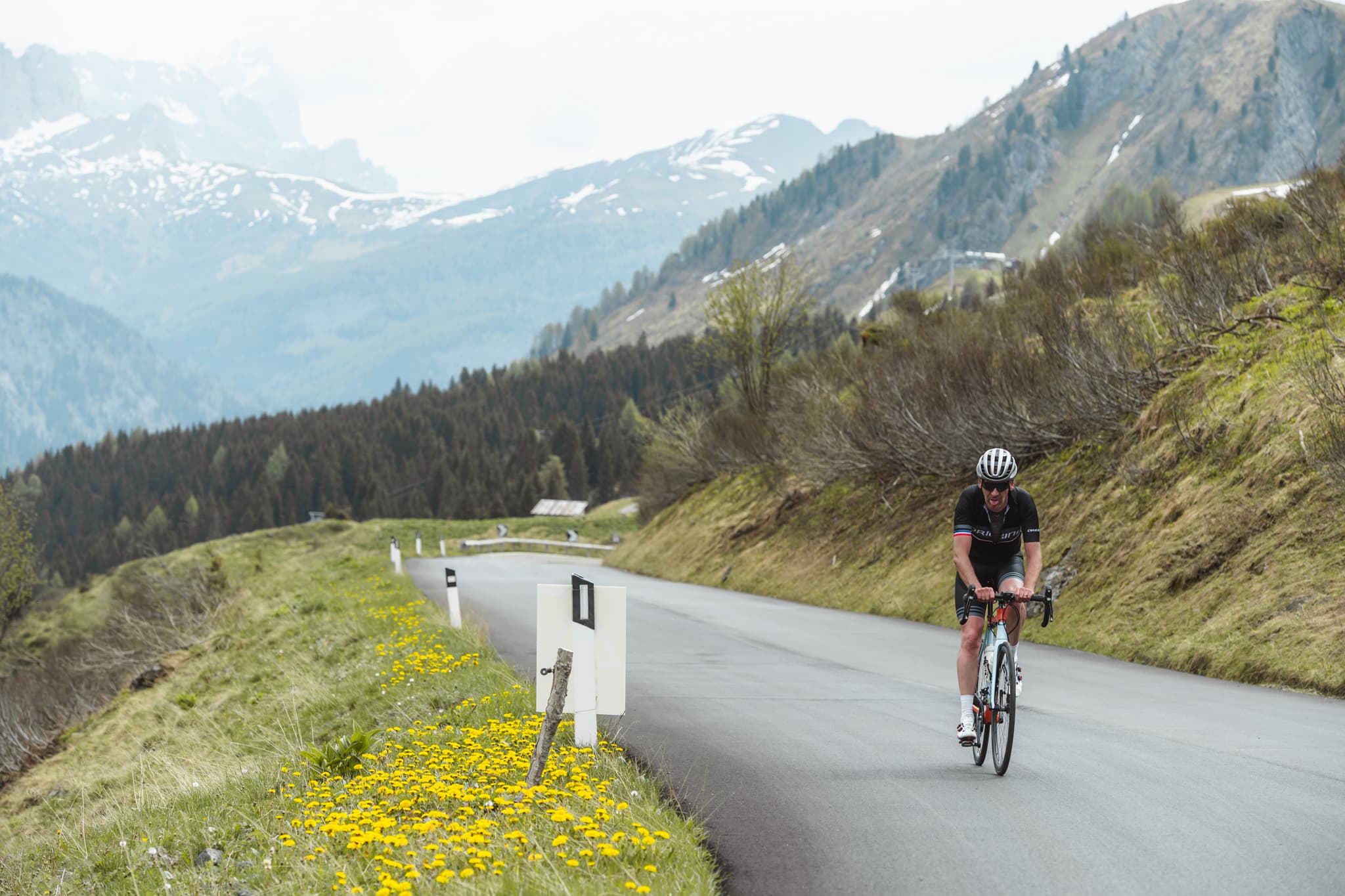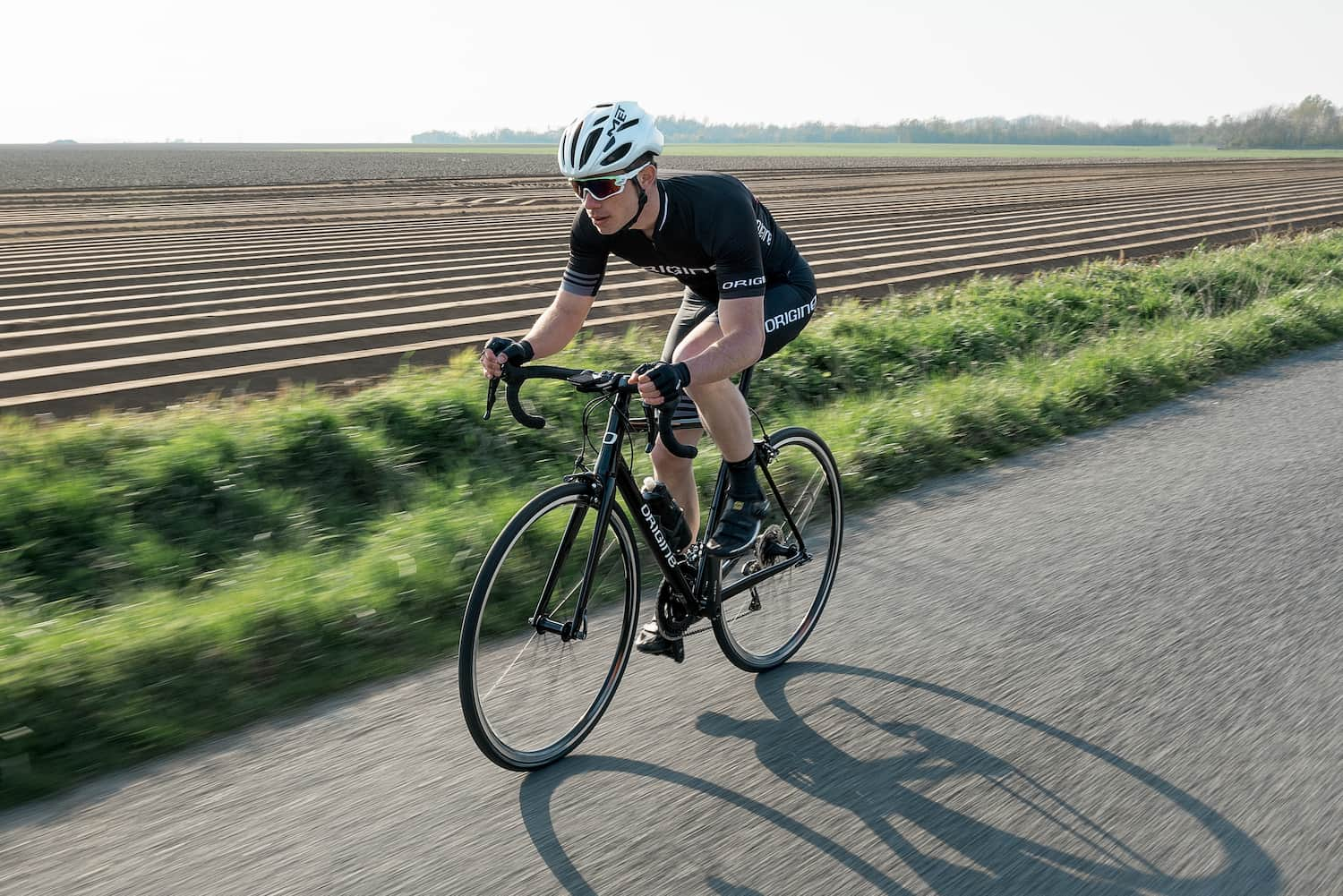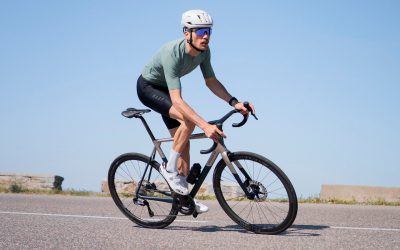To prepare for your first 60-mile bike ride, it’s important to train well in advance. You should train by doing shorter rides and gradually increasing both distance and intensity. Familiarizing yourself with your equipment and checking it before each ride is crucial. Ensure you hydrate properly before and during the ride and wear weather-appropriate clothing.
Training Plan for Your First 60-Mile Bike Ride?
1. Progression
Start with shorter distances. If you’re not accustomed to long rides, begin with shorter distances (30 miles, then 40, 50 miles) and gradually increase your distance. You can increase your maximum distance by 3 to 6 miles per week.
2. Consistency
To prepare for a 60-mile ride, aim for regular training, ideally between two to three times per week. Try to include one or two longer bike sessions in your schedule each week. Other rides can be shorter (12 to 25 miles). If you only ride a few times a month, progression will be challenging. It’s the consistency of rides that leads to improvement.
3. Physical Conditioning
In addition to cycling, you can also include other physical activities to enhance your overall fitness, such as running, swimming, or strength training. Muscle strengthening (lower back, abdominals, etc.) contributes to efficient pedaling, maintains a good riding position, and reduces the risk of injuries.
What equipment should you prepare?
A road bike in good condition. This involves checking for wear and adjusting tire pressure. Check the cleanliness, wear, lubrication, and proper adjustment of your drivetrain. Once these basic checks are done, consider carrying a minimum repair kit. This includes a spare inner tube, a few patches if needed, tire levers, a hand pump or CO2 cartridge, and a multi-tool. This kit helps prevent major issues, such as punctures, derailleur adjustment, or loose components.

What nutrition to sustain a 60-mile bike ride?
To complete a 60-mile bike ride, proper nutrition is essential. It’s the primary source of energy to accomplish this challenge.
Before riding, you should consume energy-rich foods such as complex carbohydrates (pasta, rice), vegetables, and proteins, ensuring that your diet is sufficiently varied. Avoid eating too much fat or fast sugars.
You should also drink plenty of fluids to stay hydrated. Ideally, consume 1 liter of water before starting your bike ride.
We strongly recommend taking snacks to provide fuel boosts during your ride. To maintain energy on the bike, it’s important to eat carbohydrate-rich foods that fuel your muscles. Here are some examples of foods that can help you sustain your energy during a long bike ride:
- Bananas: Bananas are rich in carbohydrates, potassium, and vitamins, making them an ideal snack for cyclists.
- Energy bars: Energy bars are convenient to take with you on your bike ride and typically contain a blend of carbohydrates, proteins, and fats for sustained energy.
- Dried fruits: Dried fruits like raisins, dates, and figs are rich in carbohydrates and easy to carry for a quick snack during your ride.
How long does it take to cycle 60 miles (or 100 km)?
An occasional cyclist, on mostly flat to hilly terrain, can expect an average speed of 12mph or 20 km/h, which means 5 hours of cycling to complete a 60-mile or 100 km route. A regular cyclist may be able to ride at 15mph or 25 km/h and finish the distance in 4 hours. A highly trained cyclist can ride at 18mph or 30 km/h and cover 60 miles in roughly 3h30 or 100 km in just 3 hours and 20 minutes.
Time to ride 60 miles :
- Occasional : 12 mph, 5h
- Regular : 15 mph, 4h
- Expert : 18 mph, 3h30
Time to ride 100km :
- Occasional : 20km/h, 5h
- Regular : 25km/h, 4h
- Expert : 30km/h, 3h20
In addition to the time spent on the bike, also consider the time for breaks or necessary stops in towns and to obey traffic laws. This duration will be at your discretion, depending on the pace you want to maintain.”

How to maintain endurance to succeed in a 60-mile bike ride?
Maintaining an endurance pace on a bike can be challenging, but here are some tips that can help you:
It’s important to know your endurance pace, which is the pace you can maintain for long periods without getting exhausted. If you don’t have a way to monitor your heart rate, endurance pace is the pace at which you can talk without being out of breath, without needing to pause to catch your breath mid-sentence. Even if you’re riding alone, try speaking to check that your breathing isn’t too heavy. If it is, slow down. There’s no harm in riding slower to go further.
Use a speedometer or power meter. Speedometers or power meters can help you maintain a steady pace by providing precise information on your speed and power. You can also use a GPS to track your pace and distance covered.
A high cadence (80 to 100 revolutions per minute) is ideal for maintaining an endurance pace. You can use a cadence meter to help maintain a steady cadence. Avoid riding forcefully, meaning on difficult gears. This could prematurely exhaust your muscles.
To maintain an endurance pace, it’s important to conserve energy. Try to pedal smoothly and avoid unnecessarily exhausting yourself by sprinting or climbing too quickly. Never be in a rush. You’re in for several hours of cycling, so enjoy every moment.
Plan your route in advance and make sure you know where you can replenish your water and food supplies. Also, plan for a break every hour or so to rest, drink, eat, and lightly stretch.
Lastly, enjoy the scenery. If you’re riding in a group, share some good moments with friends. It’ll make time fly by and the miles pass quicker. In short, have fun.

What bike to choose for long rides?
For long rides, it’s important to choose a bike that offers both comfort and performance. In this case, the Origine road bike range is perfectly suited. These lightweight, high-performance, and comfortable road bikes are perfect for all cycling practices. With the configurator, you can even get a custom build that offers a tailor-made position for optimal comfort to ride 100 km or 200 km without pain.
The Origine team is composed of experts, cycling enthusiasts, and practitioners in all disciplines (road, gravel, cross-country, bikepacking, ultra-distance, DH, etc.). The articles written by the Origine team aim to inspire, advise, and inform you to support you in your cycling practice.


![[Guide] How to Get Started in Ultra-Cycling ?](https://cyclisthouse.origine-cycles.com/wp-content/uploads/2021/12/BikingMan-x-Origine-Cycles-1_adobespark-400x250.jpeg)
